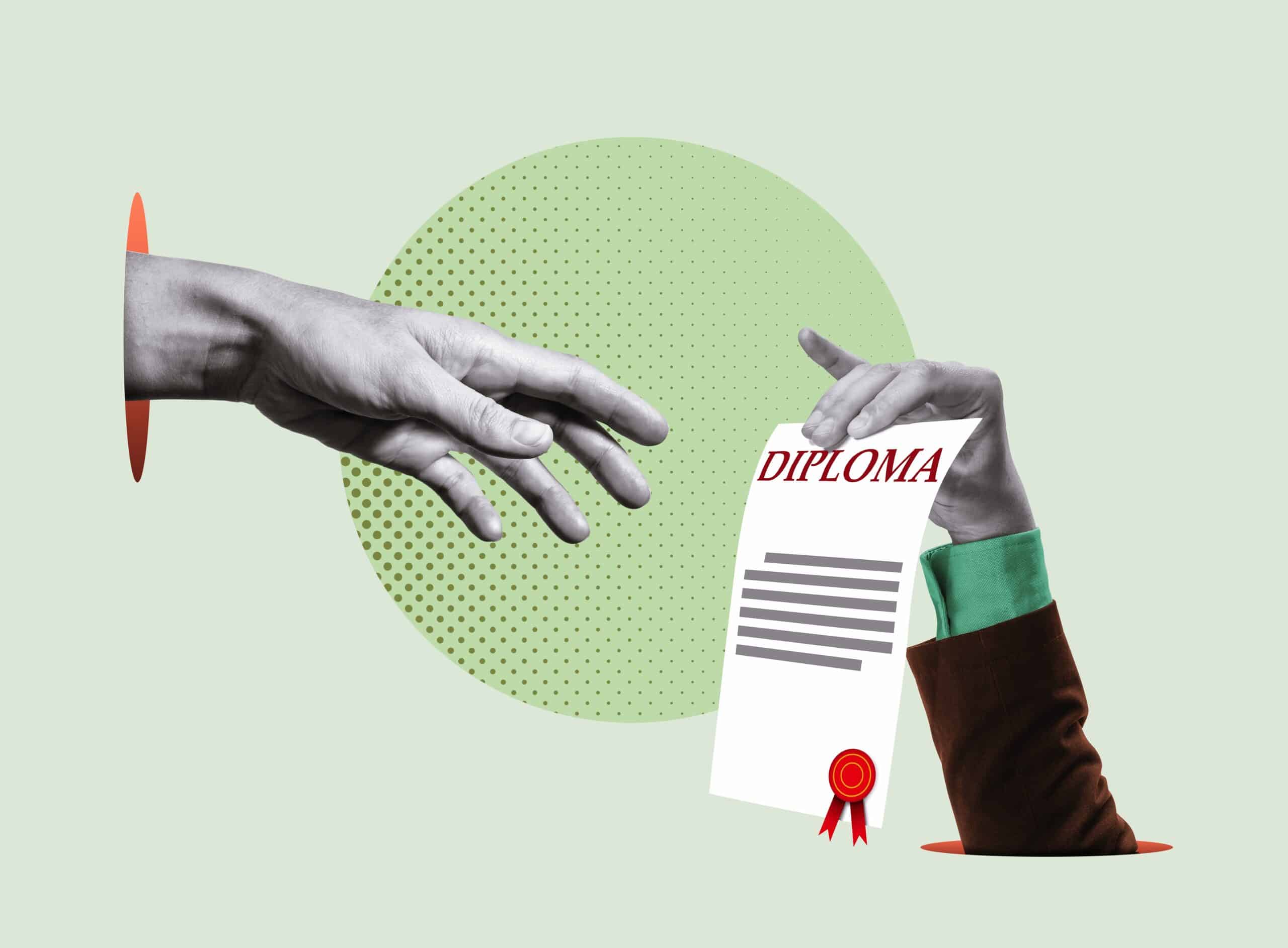What is controlled in a background check?
A background check consists of a verification of the job applicant’s information and is an important part of making informed hiring decisions. Some parts that are commonly checked are the following:
1. Identity check
A check of the applicant’s personal data by verifying passports, ID cards, residence permits and/or valid work permits.
2. Education check
A check of education where relevant diplomas can be verified to ensure that the candidate has the required competences and is honest.
3. Work experience check
The work experience of a (potential) employee is checked. A specified reference or HR department is contacted to verify length of employment, position and employer.
4. Credit check
A credit check where relevant information from courts, Enforcement Agency and debt collection agencies is checked to identify if there are financial risks involved in hiring someone.
5. Criminal record background check
In a criminal background check, the applicant’s criminal record and ongoing court cases are checked. Note that only relevant judgements are checked, this is regulated by the GDPR.
6. Salary check
A salary check with the last three payslips, where you can see if the person receives income from any competing activities.
The education check together with the other elements of a background check allow you to verify all the important personal details and be sure that the person you are hiring is who they claim to be.
You can read more about our different background checks here and combine them to suit your organisation’s needs. You can also contact our experts for more tips.

Why it is important to carry out a pre-employment screening including a diploma check
To have trust in your employees is key for a healthy work environment. If you find out during the recruitment process that an applicant has lied on their CV, that trust is broken. A mishire costs an average of SEK 700,000, so a check of relevant educations and diplomas before employment should be a natural part of a company’s risk management. Once a job is signed, it can be difficult to terminate the employment, even if it is discovered that the person has lied about their background. By conducting a pre-employment education check, you can minimise the risk of a costly mishire.
Detect diploma mills
Diploma mills have increased significantly in the Swedish labour market. According to a report by the Swedish Council for Higher Education (UHR), fake universities and diplomas have an annual turnover of several billions. In addition, the people behind these activities often have links to criminal organisations, which is a major social problem in Sweden today. Fake diplomas and fake universities are a relatively new social phenomenon. And can be difficult to detect. Tips on how to detect these fake diploma mills can be found further down in the text.
As an employer in socially important professions such as doctors, bankers, police officers, the military and the like, it is essential that you carefully scrutinise and verify the educational and professional credentials of applicants. Employing someone in these professions who have false credentials can have disastrous consequences for both individuals and society as a whole. For example, a person working as a doctor without the necessary skills and training can put people’s lives and health at risk, resulting in serious medical errors and injuries. Similarly, improper employment in the banking sector or in law enforcement agencies, such as the police and military, can lead to financial losses and jeopardise public safety. Therefore, it is of utmost importance to ensure that applicants have genuine credentials and are competent to perform their duties reliably.
“Many forgeries are really sophisticated and can be difficult to detect, you have to know what you are looking for,” says Cecilia Ulfsdotter, Head of Unit at the Swedish Council for Higher Education.
What are the most common lies on a CV?
The most commonly lied about in CVs are degrees, salary and previous work experience. It may be that someone claims that they have a university degree that they don’t have because they have no credits or because they have never taken it. Also, it is not uncommon for people to add their own titles to roles they have held in the past to make it sound better.
According to a survey conducted by the recruitment company Kelly Services, men are more likely to lie on their CVs than women. For example, when it comes to language. When a recruiter asks if the applicant knows German, men are more likely to say that they know the language even though they have only studied a few semesters in high school, while women are more likely to answer truthfully.
What measures should you take to detect cheating on a CV?
A background check is a simple measure to verify an applicant’s education and detect fake diplomas. You will be informed if something in the CV is deviant and can act immediately, either by talking to the applicant to get an explanation or by excluding the person from the recruitment process. In more serious cases, you can contact the police and file a report, for example if it appears that the candidate in question has falsified official documents, IDs, signatures or driving licences. Falsifying these documents is considered forgery and can lead to a prison sentence of up to 2 years.
Not sure how to proceed with background checks on candidates? Or do you have further questions?
Tips on how to recognise a bogus university and diploma mills
Detecting fake diplomas can be difficult, but there are certain signals that you should act on. Follow along below.

- Names that resemble a real university ex. University of Gothenburg instead of Gothenburg University.
- Names containing ”American”, ”international” and ”global”.
- Writes explicitly that the university is not a fake university.
- Downplaying the importance of accreditation or admitting to having approval from a fake organisation.
- Can only be contacted via email or social media, and has a fake website.

- Chat function that connects with a call centre.
- Low requirements for admission and degree credits.
- Price focuses on diplomas rather than tuition fees.
- Ability to request diplomas from further back in time.
- Images with logos of well-known credit card companies on the website.
More information at Universitets- och högskolerådet.
Streamline the recruitment process: Let Validata check your candidates’ CVs and diplomas
Verifying diplomas and qualifications yourself can be a time-consuming and complicated process. When you use Valluga, our screening software and services, you can rest assured that a background check is done according to all laws and regulations such as GDPR. We work with trusted sources and qualified data partners to check education and applicant data. We check diplomas directly from both Swedish and foreign universities so that you can feel confident in your hiring decision.

Save time and stress during recruitment: Test out our employment screening software
With our flexible screening software, Valluga, you can easily check the accuracy of the relevant information in the applicant. Valluga integrates with most HR and recruitment tools and can process up to hundreds of screenings at once. Thanks to our innovative software development and automated processes, you can minimise the time spent doing background checks and make informed, fact-based hiring decisions.
Contact us!
Contact us
Contact us
"*" indicates required fields
Contact us
"*" indicates required fields
Download the white paper
Download the white paper
Download the white paper
Contact us
"*" indicates required fields
Thanks for registering!
"*" indicates required fields






